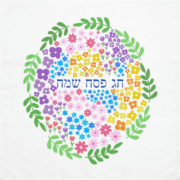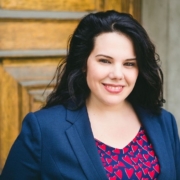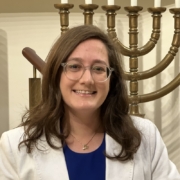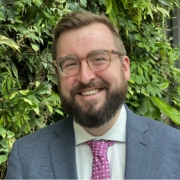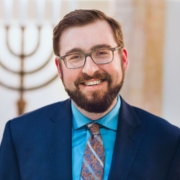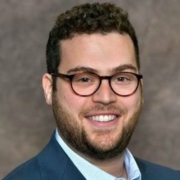שִׁיר הַמַּעֲלוֹת בְּשׁוּב יְהֹוָה אֶת־שִׁיבַת צִיּוֹן הָיִינוּ כְּחֹלְמִים׃
אָז יִמָּלֵא שְׂחוֹק פִּינוּ וּלְשׁוֹנֵנוּ רִנָּה אָז יֹאמְרוּ בַגּוֹיִם הִגְדִּיל יְהֹוָה לַעֲשׂוֹת עִם־אֵלֶּה׃
A Song of Ascents, when God restores the fortunes of Zion- it is like a dream. And our mouths will fill with laughter, our tongues with songs of joy. They shall say, all the nations, “Oh, God has done such great things for them.” Psalms 126: 1-2
I dreamt about Jerusalem this week.
It was not a particularly flashy dream. Nothing good or terrible happened. I was simply back in my apartment, strolling through the streets that I walked daily for years. Even during the dream, I knew that I was asleep because the neighbourhood doesn’t look like that anymore. There’s a new fancy hotel on the corner and the makolet was replaced by a cell phone store. Even the old baker who waved to me in my dream; died nearly a decade ago.
I dream of Jerusalem often, and – unlike in our Torah portions of the last few weeks- I don’t need an interpreter to tell me what it means. I miss Israel.
Israel has been on my mind, and on many of our minds since the elections and the formation of a new government. It’s hard to be plugged into the ‘Israel sphere’ and not be aware of the trials and tribulations facing the Jewish state at this time.
Is Judicial reform necessary for a healthy democracy or does it mark the erosion of democratic values?
Is the threat of Iran growing or is the government overplaying its regional foe?
With Bibi back as Prime Minister are we seeing a return to business as usual or does the inclusion of extreme right-wing parties in the Knesset mark a new world?
I don’t have the answers to these questions, but I’m lucky that our Holy Blossom Temple has access to some of the most informed and thoughtful minds on the planet when it comes to Israel. For the last few years, Holy Blossom Temple members Prof. David B. Dewitt and Mark S. Anshan, alongside our generous sponsors and Israel Committee, have organized “The Israel Dialogues.” The Israel Dialogues is a program that brings leading scholars, journalists, diplomats, and politicians together to participate in high-level yet accessible discussions on the issues that Israel is facing today. The panel that they have organized is truly some of the best and brightest that Canada, and North America, have to offer.
The Israel Dialogues return tomorrow, at noon, and you can register HERE. Our first guest will be the Deputy Editor in Chief of Haaretz, Noa Landau, joining us to speak about the election and how religion played a surprise role.
If you too are dreaming of Israel, I do hope that you’ll join us.


